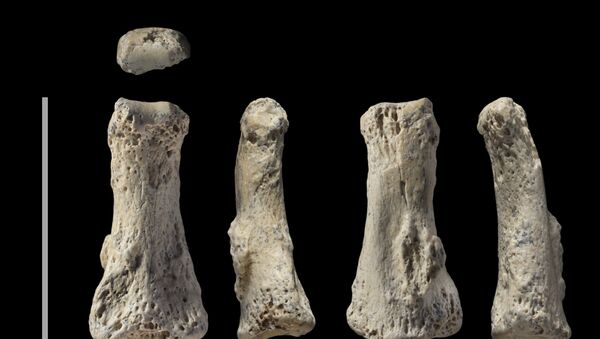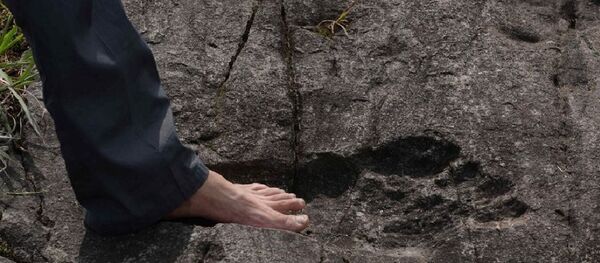A fossilized human finger bone from around 100,000 years ago, found by a team of Oxford University archeologists in Saudi Arabia’s Nefud Desert, adds weight to the idea that early human migrations out of Africa to Eurasia, the Americas and Australia began well before 60,000 years ago as was previously thought, the Science Alert journal wrote.
Uranium-Thorium and paramagnetic resonance analysis revealed that the finger bone found in the Arabian Desert is between 86,000 and 95,000 years old.
"This find, together with other finds in last few years, suggests that modern humans, Homo Sapiens, were moving out of Africa multiple times during many windows of opportunity during the last 100,000 years or so," said Professor Michael Petraglia who led the research.
Scientists had also previously believed that modern humans moved via the Middle East into other parts of Asia and Europe in a single migratory wave. Revolutionary finds from elsewhere in the region however have also challenged this theory. A human jawbone is the oldest human fossil to be discovered outside the African continent was uncovered at Misliya in Israel and has been dated to between 177,000 and 194,000 years old, suggesting that Homo Sapiens spread out from their original African homeland in multiple waves of migration spanning the course of tens of thousands of years.
Along with the human remains, the researchers discovered the remnants of animals long-since extinct in the Middle East including hippopotami from a time when the Arabian Desert was greener and more fertile, resembling the African Savannah.
Human remains dating back to between 70,000 and 120,000 years ago have been found also in Southern and Central China.
READ MORE: Fossilized remains of oldest European found in Spain



